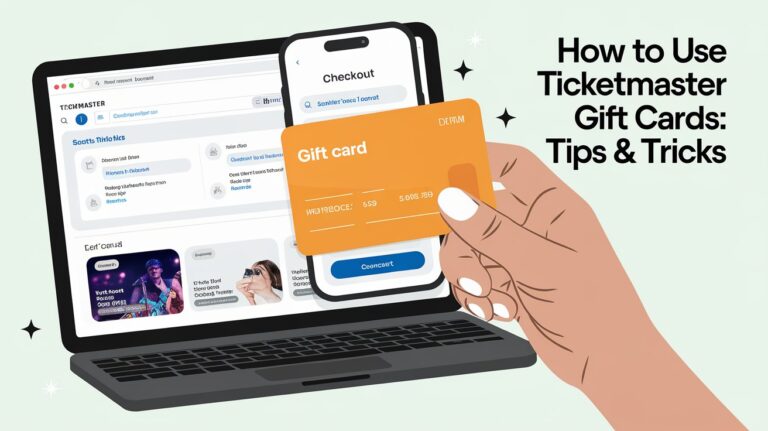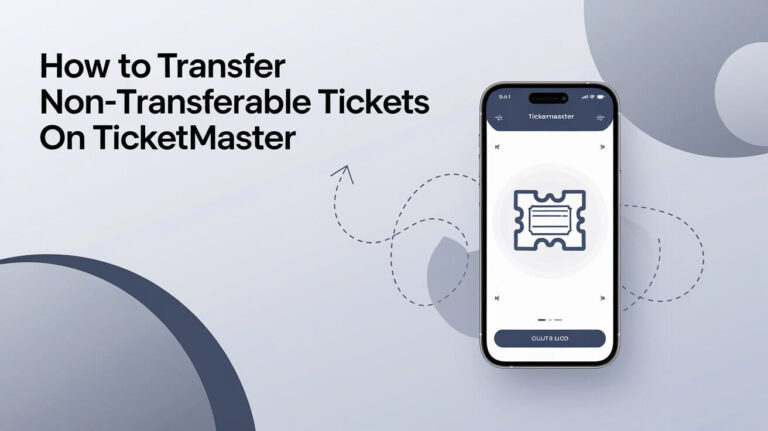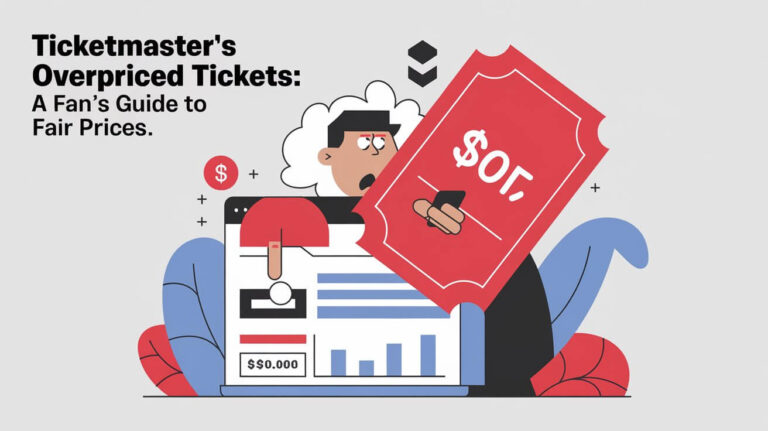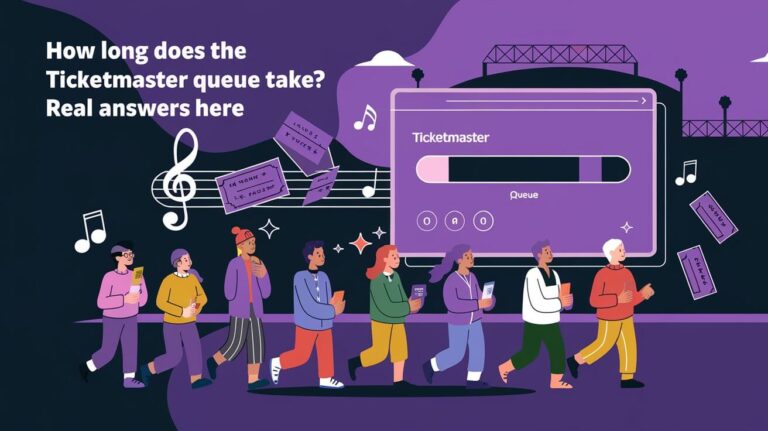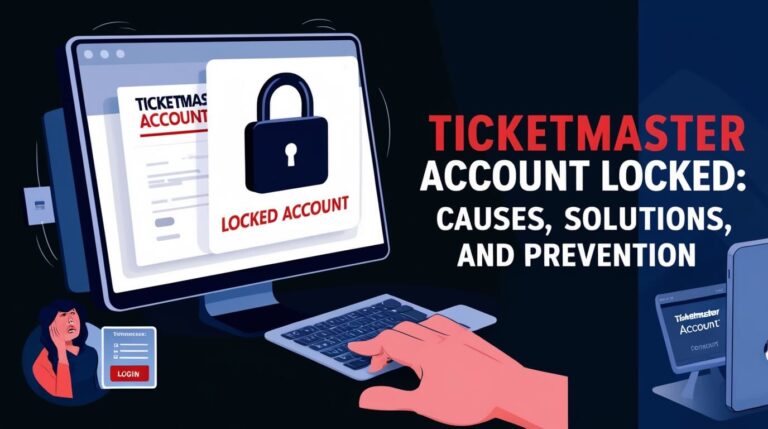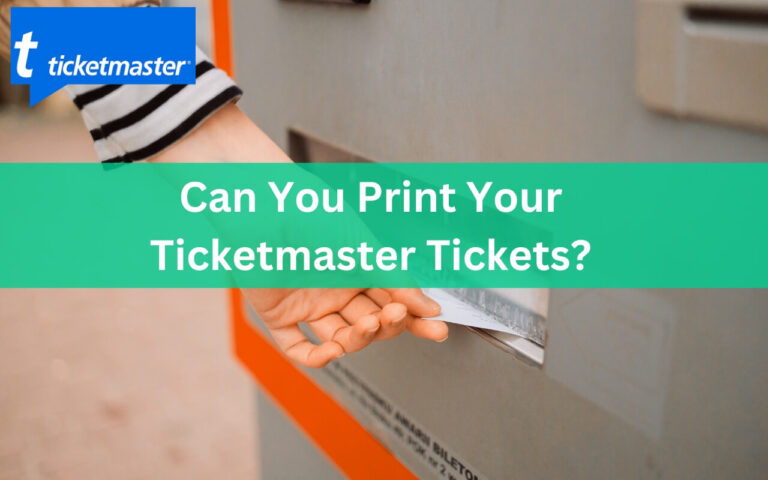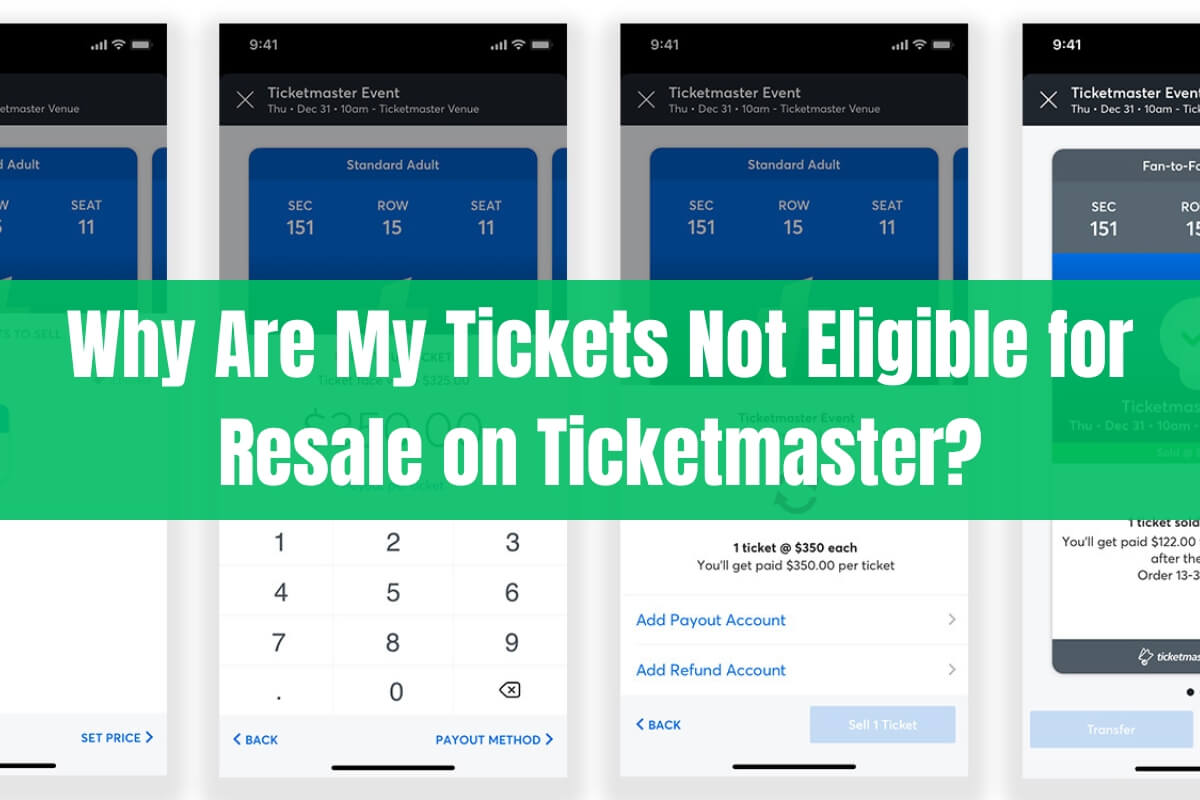
Ticketmaster’s resale policies can be frustrating when you need to get rid of tickets you can’t use. The short answer is that your tickets may not be eligible for resale on Ticketmaster due to restrictions set by the event organizer or venue. However, there are several potential reasons behind this, which we’ll explore in-depth.
In this detailed guide, we’ll cover:
- Ticketmaster’s overall ticket resale policy and requirements
- Common reasons why tickets become ineligible for resale
- Steps to check if your specific tickets allow resale
- Important verified resale requirements like tax details
- Alternative options if official resale isn’t available
- And more helpful tips to navigate Ticketmaster’s resale process
Whether you accidentally bought too many seats or had a change of plans, not being able to resell your tickets can be incredibly frustrating. By the end of this post, you’ll have a thorough understanding of why certain tickets can’t be resold on Ticketmaster and what you can do about it.
Ticketmaster’s Ticket Resale Policy
First, let’s quickly go over Ticketmaster’s official ticket resale program, known as “Verified Resale Tickets.” This platform allows fans to securely resell tickets they can’t use to other fans at the original price or less.
However, the key thing to understand is that not all tickets or events sold through Ticketmaster are eligible for public resale. The decision to allow or block ticket resale is ultimately up to the event organizer, venue, sports team, or artist.
Some artists, venues, and event organizers have chosen to completely disable resale functionality to discourage scalpers and inflated prices on the secondary market. Others may selectively enable resale for certain sections or price tiers of tickets only.
Common Reasons Why Tickets May Be Ineligible for Resale
If you’ve tried listing your tickets on Ticketmaster’s resale platform and received an error message about your tickets being ineligible, there could be several potential reasons behind this:
The Event Organizer Hasn’t Activated Resale
The most common reason is simply that the artist, team, or venue hosting the event has not activated or enabled the resale option for the specific show. As mentioned, this is entirely at their discretion.
Your Order Included Add-On Items
Certain ticket orders that bundle additional items like parking passes or early entry may not qualify for standard ticket resale through Ticketmaster. The resale policies can vary for these add-on products.
The Event Is Very Soon
Most resale platforms, including Ticketmaster, disable resale for events happening extremely soon, such as within the next 5 business days or less. This is likely to reduce complications with last-minute ticket transfers.
You Used a Gift Card for Payment
Orders paid for fully or partially using a gift card often can’t be resold through Ticketmaster’s official platform, even if the event otherwise allows resale.
Your Tickets Were Already Resale
In general, tickets that you originally purchased from a resale site or secondary market can’t then be re-resold officially through Ticketmaster’s platform.
Theater Shows and Festivals
While Ticketmaster is primarily known for major concert tours and sporting events, certain types of tickets like theater performances, comedy shows, and multi-day music festivals may have different resale policies.
Accessible or VIP Tickets
For logistical and policy reasons, resale may be disabled for ADA/accessible seating or premium VIP package tickets for some events.
There is no universal explanation for why certain tickets cannot be resold – it depends on the event specifics and rules established by the organizers. Do not expect resale to be an option unless explicitly stated.
When Do Ticketmaster Tickets Become Eligible for Transfer?
One potential explanation you may receive from Ticketmaster if your tickets aren’t currently allowing resale is that the tickets haven’t been “issued” or made available for transfer yet.
In some cases, the ability to view, transfer, or resell tickets through Ticketmaster doesn’t unlock until very close to the actual event date – sometimes as little as 72 hours beforehand.
This is a security precaution used by some event organizers and venues to theoretically cut down on ticket scalping and prevent tickets from being transferred or resold too far in advance.
So if your tickets show “Not Currently Available” for resale, it could simply be due to this ticket delivery delay being in place. The resale functionality may very well become enabled once you’re within the ticket issuance window before the event.
This does not guarantee resale ability. Check frequently closer to the event date, as organizers may prohibit resale altogether.
How to Check If Your Tickets Allow Resale on Ticketmaster
To find out definitively whether your specific concert, sports, or event tickets purchased through Ticketmaster currently allow resale, you’ll need to log into your Ticketmaster account and follow these steps:
- Sign into your Ticketmaster account on their website or mobile app
- Navigate to the “My Events” section to view your upcoming event tickets
- For the event in question, look for either:
- A blue “Transfer Tickets” button
- A “Sell Tickets” or “Resell” button
- If neither option is available or you see a message stating “Resale Not Available,” then official resale/transfer is currently blocked for your tickets.
It’s worth noting that even within the same event or tour, resale may be enabled for some sections/price levels while disabled for others based on the organizer’s settings.
You can always double-check with Ticketmaster’s customer service if the resale policies for your specific tickets aren’t clear from your account. But in general, the availability of those “Transfer” and “Resell” buttons is your indicator.
Important Verified Resale Requirements
If your tickets do allow resale through Ticketmaster, be aware that you’ll need to meet a few key requirements in order to complete the process and get paid:
Have a U.S. Bank Account
To resell tickets for U.S. events and receive payouts from Ticketmaster, you must have an active U.S. bank account. International accounts are typically not accepted for resales.
Provide Tax Details
As part of their legal obligations, Ticketmaster requires resellers to submit tax identification information such as your:
- Social Security Number (SSN)
- Individual Taxpayer Identification Number (ITIN)
- Or Employer Identification Number (EIN)
This facilitates any necessary tax reporting on your resale transactions.
Other Payout Requirements
Beyond the banking and tax details, you’ll need to have a valid debit card and payment method on file with Ticketmaster to complete resales and receive payouts, which typically deposit 5-7 business days after a successful sale.
So while Ticketmaster’s resale platform is free for buyers, there are a few reasonable verification requirements for sellers to comply with tax laws and facilitate payouts securely.
If resale is enabled for your tickets and you meet these basic requirements, then you should be able to successfully list your tickets for transfer or resale to other fans through Ticketmaster’s official channels.
Alternative Ticket Resale Options
In scenarios where Ticketmaster outright blocks resale for your event tickets, you do have a few alternative options to potentially recoup some of your costs:
Transfer to Friends/Family (If Permitted)
Even if public resale isn’t available, some events may still allow you to directly transfer your tickets to someone else’s Ticketmaster account for free. Look for a “Transfer Tickets” button to send tickets to a friend covering the cost.
Contact the Event Organizer
If resale policies aren’t clearly stated, you can try contacting the official event organizer (venue, promoter, team, etc.) to inquire about their specific policies and if any authorized resale channels exist for that event.
Look Into Authorized 3rd Party Resellers
While not an option for every event, some organizers may have partnered with authorized third-party resellers like StubHub, Vivid Seats, or SeatGeek where you could potentially resell tickets even if Ticketmaster’s platform doesn’t allow it.
Private Sale
As a last resort for active events, you could try finding a private buyer and simply transfer or share your tickets directly with them outside of official platforms, though this comes with more risk.
The key is exploring all your legitimate resale and transfer choices if Ticketmaster specifically won’t accommodate it for your situation. Don’t immediately resort to any options that could violate event policies or terms of use.
Conclusion
Not being able to resell tickets on Ticketmaster can be really frustrating. Resale policies are set by event organizers and venues. They often block resales to discourage scalpers and higher prices.
If you can’t resell your tickets, double check for the “Transfer” or “Sell” buttons in your Ticketmaster account. See if any resale options open up closer to the event date. Look into approved third-party resellers too.
If no legitimate resale is possible, you may need to find a private buyer or give the tickets to friends/family instead. But don’t violate any terms that could get your tickets canceled.
Event organizers make resale rules based on their own priorities. Understand Ticketmaster’s processes when buying tickets originally. Have reasonable expectations about resales.
Focus on approved resale channels. With patience and these tips, you have the best chance to recoup costs for tickets you can’t use properly.

